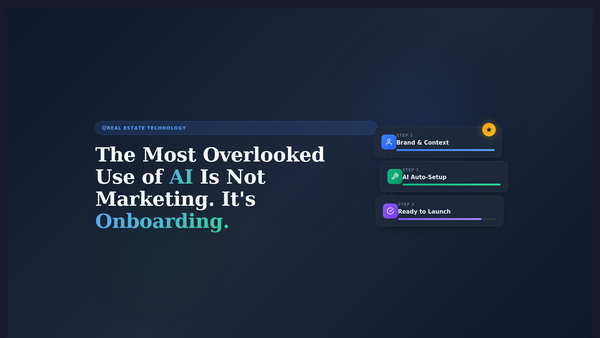Buying a home represents a significant aspect of the American Dream. However, the decision to buy or rent is a pivotal one, as it profoundly impacts your financial well-being, lifestyle, and personal aspirations.
Your choice between the two options hinges entirely on your unique circumstances, encompassing your income, your capacity to manage payments and associated expenses, and your willingness to commit to property maintenance.
Renting and owning property are inherently distinct. Renting a property liberates you from the array of responsibilities typically associated with homeownership, offering more flexibility since you're not necessarily tied down to a specific property. In contrast, owning a home grants you a substantial investment opportunity, albeit at a substantial cost, both in the initial stages and over the long term.
It's essential to acknowledge that owning a home doesn't always supersede renting, and renting isn't as straightforward as it may initially appear. In this blog, we aim to shed light on the key distinctions between these two choices: pros and cons of buying vs. renting.
Pros of Buying a Home
Following are the pros of buying a home:
1. Building Equity
Buying a home is like investing in your future. Each mortgage payment you make builds equity, which is essentially your ownership stake in the property. Over time, this can lead to substantial wealth accumulation. Plus, if the housing market is in your favor, your home's value may appreciate, further boosting your financial standing.
2. Stability and Freedom
Owning a home provides stability and a sense of permanence. You have the freedom to customize and personalize your space as you wish, giving it that unique touch. Long-term stability is another advantage; you won't have to worry about rent increases or landlord changes.
3. Potential Tax Benefits
Homeownership can come with tax perks. You may be eligible for deductions on mortgage interest, reducing your taxable income. Additionally, when you sell your home, you could benefit from capital gains exemptions if you meet certain criteria.
4. Sense of Ownership
There's a unique sense of pride and ownership that comes with having your own home. You can make improvements and upgrades that reflect your personal style, and you're not subject to the rules and restrictions of a landlord.
5. Investment Opportunity
Real estate has historically been a reliable long-term investment. As your home's value appreciates, you can potentially sell it for a profit in the future, providing you with a substantial financial asset.
Cons of Buying a Home
Following are the cons of buying a home:
1. Upfront Costs
Buying a home requires a substantial upfront investment. You'll need to come up with a down payment, which can be a significant financial hurdle, along with closing costs that cover various fees.
2. Maintenance and Responsibility
As a homeowner, you're responsible for maintenance and repairs. This includes everything from fixing leaky faucets to major renovations. Don't forget property taxes and homeowner's insurance, which can add to your monthly expenses.
3. Limited Flexibility
Homeownership can tie you down. If you need to move for work or other reasons, it can be challenging to sell your home quickly, especially in a volatile housing market. Market fluctuations can also affect your property's value.
4. Mortgage Commitment
A mortgage is a long-term commitment that can last for 15, 20, or 30 years. While this commitment builds equity, it can also feel restrictive if your circumstances change.
Pros of Renting
Following are the pros of renting a home:
1. Financial Flexibility
Renting typically involves lower upfront costs compared to buying a home. You'll avoid the hefty down payment and many of the closing costs. Monthly rent is usually predictable, making budgeting more straightforward.
2. Minimal Maintenance
Renters benefit from landlords who take care of property maintenance and repairs. You won't need to worry about fixing the leaky roof or replacing the water heater. Property taxes are also the landlord's responsibility.
3. Geographic Mobility
Renting offers flexibility if you anticipate moving in the near future. It's easier to relocate when you're not tied to a mortgage. You can explore different neighborhoods or cities without the hassle of selling a home.
4. Lower Financial Risk
Renting can provide a safety net against fluctuations in the housing market. You're not directly exposed to changes in property values, which can be a source of financial stability in uncertain times.
Cons of Renting
Following are the cons of renting a home:
1. Lack of Equity Building
One significant drawback of renting is that you're not building equity in a property. The money you pay in rent does not contribute to ownership or future wealth. Over time, this can add up to a significant amount of money lost to rent payments.
2. Limited Control
Renters have limited control over their living space. You may face restrictions on customizing your home, such as painting walls or making structural changes. Rent increases and lease terms are at the discretion of the landlord.
3. Uncertainty and Long-Term Costs
Renting can be uncertain in the long run. Rent prices may increase over time, making it harder to budget. Additionally, there's no mortgage payoff, which means you won't have a property to call your own in the future.
4. No Investment Potential
When you rent, your monthly payments are essentially covering your living expenses, with no potential for a return on investment as you would get with homeownership.
Buying vs. Renting: Which is Better?
While finances undeniably hold a pivotal role in the decision-making process of whether to buy or rent a home, it's imperative to acknowledge that this choice encompasses more than just financial considerations.
Numerous other factors come into play when determining the path to take. Elements such as the anticipated duration of your stay in a particular location, your future aspirations, career objectives, and more all factor into your ultimate decision.
However, it is crucial to emphasize that committing to long-term homeownership demands serious contemplation before arriving at any conclusions. If you are on the verge of settling down, starting a family, or establishing a career in a specific company or location, it might be the right time to begin the process of saving for a home.
Conversely, if your perspective on life suggests that there is a vast world to explore or if you remain uncertain about your career path, renting is likely the more suitable choice. Renting offers greater flexibility, which can be invaluable when your life journey is still unfolding and your future endeavors remain uncertain.
Conclusion
The pros and cons of buying vs renting depend on your unique circumstances and priorities. There's no one-size-fits-all answer. Whether you choose to build equity through homeownership or enjoy the flexibility of renting, your home should be a place where you feel comfortable and secure.
Remember, the choice is yours to make, and finding your "Home Sweet Home" is a significant step towards creating a bright future. Take your time to evaluate your options and make the choice that aligns best with your current situation and future goals. Your perfect home is out there, waiting for you to discover it.







